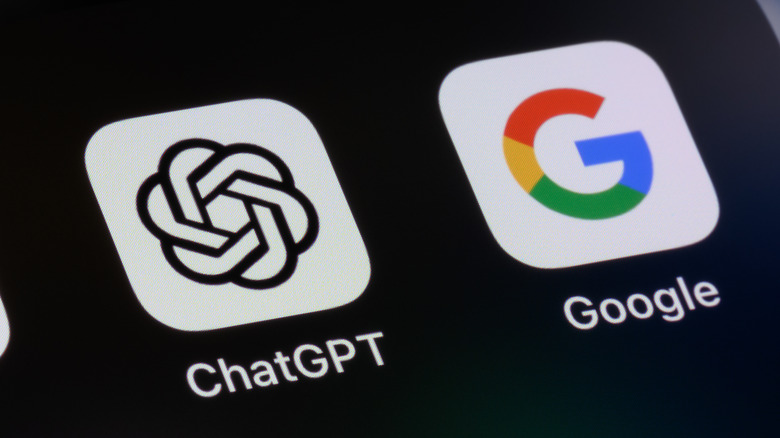
Kenneth Cheung/Getty Images
After dominating the generative AI race with chatbots and image generators, OpenAI is taking the fight to Google on the latter’s home turf, at least according to a new leak. The Information, citing an insider source, reports that OpenAI has been at work developing an internet search product. Now, it’s unclear whether the web search tool will be integrated directly within ChatGPT — with or without a paid subscription — or if it will be launched as a standalone search product. OpenAI is yet to officially confirm plans to launch a search tool that rivals Google’s eponymous market-leading search system. However, the company has been steadily building toward that moonshot for over a year.
ChatGPT initially had a knowledge cutoff that kept it from accessing the latest information on the web. In March 2023, OpenAI announced support for web plug-ins, including a browser plug-in developed by its team. A few months later, in September, OpenAI announced that ChatGPT was now capable of browsing the web and presenting up-to-date information. This functionality piggybacked on Bing, Microsoft’s search engine, which has remained a distant laggard to Google Search for years.
Google has also built a search summarization feature of its own that goes by the name Search Generative Experiences and aims to reimagine the URL-based model of finding information on the internet. Another avenue that could be even more ambitious is if OpenAI starts its very own indexing system for search — but do keep in mind that this is an early report and the plans could change down the road.
A blurry but ambitious AI vision

Bloomberg/Getty Images
It seems OpenAI, with bullish support from Microsoft, is ready to take on Google’s bread-and-butter business with a web search product. «The Search service would be partly powered by Bing,» the report claims. That part of the strategy is hardly surprising. Microsoft has poured billions of dollars into the company since its early days and has heavily relied on OpenAI’s tech stack to reimagine its own products, including Bing.
Microsoft launched its own version of ChatGPT under the name Bing Chat, then expanded the GPT-based generative AI capabilities to other products such as the Office portfolio, and eventually pushed it everywhere under the Copilot branding in 2024. It won’t be surprising to see the software giant giving a thrust to OpenAI’s AI-fueled web search product in a bid to breathe some life into Bing, as well. Microsoft lost the search engine war to Google a while ago, and AI could just be its golden opportunity to win some users into its ecosystem.
How exactly OpenAI’s secretive web search product will pan out remains to be seen, but there are some probable examples out there. Among them is Arc Search, an app developed by The Browser Company, that comes with a «Browse for me» feature. This trick scrapes the web for information relevant to the search query, compiles data from six authoritative sources, and then presents the results in the form of a custom web page, saving users the hassle of browsing a typical search page and clicking on links to find their answers.